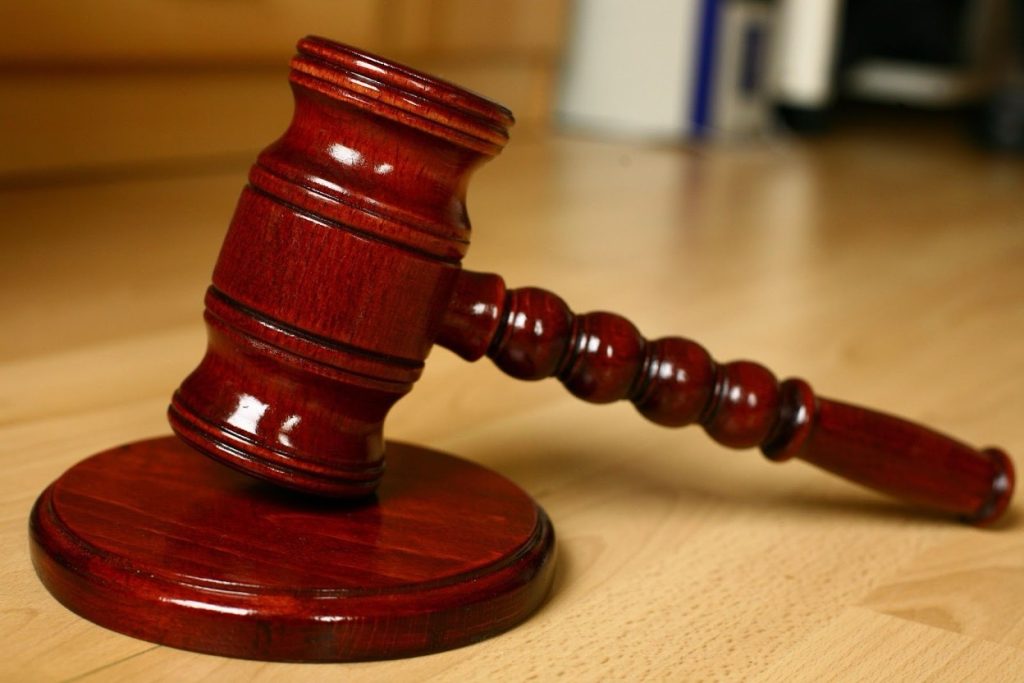- Make A Payment (866) 558-3328
- Client Portal
- Consumer Support

When a business client refuses to pay despite repeated reminders, B2B companies face a critical decision: engage a professional collection agency or pursue legal action through small claims court. Both options offer distinct advantages and limitations, and choosing the wrong approach can waste time, money, and damage valuable business relationships.
The decision isn’t always straightforward. Small claims courts promise the authority of a legal judgment. But they require significant time investment and offer no guarantee of actual collection. Collection agencies offer specialized expertise and manage the entire process for you, but since they work on contingency, your net recovery is reduced.
Understanding the differences between these approaches helps business owners make informed decisions that maximize recovery while minimizing disruption to operations.
|
Southwest Recovery Services: Get Your Money Back 20+ Years Experience | Texas-Based | Contingency Only – You Pay When We Collect
Built for Commercial Collections:
The Southwest Recovery Difference: ✓ Contingency only – no upfront costs ✓ Veteran collectors with respectful omnichannel outreach ✓ Priority sectors: trucking, logistics, contractors, oil & gas ✓ Clear reporting on account status and outcomes Trust & Results You Need: Nationally recognized ethical collections agency with 12 offices across six states. Compliance-first approach with no threats or guarantees. |
What Is a Collection Agency?

A collection agency is a specialized company that pursues unpaid debts on behalf of creditors. Professional agencies like Southwest Recovery Services work as third-party intermediaries, separating the financial dispute from ongoing business relationships while applying proven recovery strategies.
Most reputable commercial collection agencies operate on a contingency fee basis, meaning they charge no upfront costs and only collect fees when they successfully recover funds.
Collection agencies bring specialized expertise to debt recovery. Veteran collectors understand debtor psychology, employ sophisticated negotiation tactics, and use multi-channel communication strategies across phone, email, SMS, and mail.
Modern agencies also use AI-powered tracking systems that monitor payment promises, optimize contact timing, and ensure consistent follow-up without the aggressive tactics that damage business relationships.
A small claims court is a legal venue designed to resolve disputes involving relatively modest amounts, between $2,500 and $25,000, depending on your state. These courts offer simplified procedures, reduced filing requirements, and faster resolution compared to traditional civil litigation.

The small claims process begins with filing a complaint and paying court fees, which typically range from $30 to $300. You must properly serve the defendant with notice, prepare evidence, and appear in court on your scheduled date. If you win, the court issues a judgment legally obligating the debtor to pay.
Small claims courts also impose jurisdictional limitations. You can only sue debtors located in specific geographic areas, and many states limit the amount corporations can file for in small claims court, requiring them to use regular civil court instead.
Contingency pricing means you pay nothing unless funds are recovered, eliminating upfront costs and financial uncertainty. This makes professional collection viable for debts of virtually any size.
Agencies handle all communication, negotiation, and follow-up, freeing business owners to focus on operations rather than chasing payments. For busy B2B executives, this time savings often justifies the contingency fee alone.
Professional collectors understand what motivates payment, when to apply pressure versus when to offer flexibility, and how to handle debtor objections. This expertise typically produces higher recovery rates than internal efforts.
Federal and state laws heavily regulate collection activities. Professional agencies maintain compliance departments that ensure all communications comply with legal requirements, thereby protecting your business from liability.
Quality commercial collectors act as neutral third parties, separating financial disputes from ongoing business operations. This diplomatic approach often preserves relationships that aggressive internal collection efforts would destroy.
Contingency fees reduce the amount you ultimately receive. A $5,000 debt collected at a 20% contingency rate nets you $4,000 rather than the full amount.
Agencies cannot force payment through legal mechanisms. They rely entirely on negotiation and persuasion, which may prove insufficient for particularly uncooperative debtors.
Recovery success depends on numerous factors, including debt age, debtor financial condition, and account documentation quality. Not every account referred to collections will be successfully recovered.
Winning creates a legally binding judgment that establishes the debt as a matter of court record. This judgment can support enforcement actions like wage garnishments or bank levies.
If successful, you recover the entire debt amount plus court costs and sometimes interest, avoiding the contingency fee deduction that collection agencies require. This means every dollar collected goes directly to your business rather than being split with a third party.
Some debtors respond more seriously to legal action than to collection efforts. The prospect of court may motivate payment when collection letters have not.
Court judgments become public records that appear on credit reports, potentially motivating payment to avoid credit damage. This public accountability can serve as a powerful incentive for debtors who care about their credit standing.

Filing paperwork, serving defendants, gathering evidence, appearing in court, and enforcing judgments demands substantial time investment that diverts attention from business operations. Each step requires careful attention to procedural requirements and deadlines that can extend the process over several months.
Court filing fees, service costs, and potential attorney consultation expenses must be paid regardless of the end result. These costs can range from $50 to several hundred dollars, depending on your jurisdiction and the complexity of your case.
Winning a judgment doesn’t guarantee payment. Many debtors lack assets or income available for garnishment, leaving you with a judgment but no recovered funds.
Geographic restrictions determine where you can file, and dollar amount caps prevent the use of small claims court for larger commercial debts. In most jurisdictions, small claims limits range from $2,500 to $25,000, depending on the state.
Legal action typically ends any possibility of future business relationships. For B2B companies hoping to preserve customer goodwill, litigation is a point of no return.
| Aspect | Collection Agency | Small Claims Court |
|---|---|---|
| Upfront Costs | Zero (contingency-based) | Filing fees, service costs ($100–$300+) |
| Time Investment | Minimal; agency handles everything | Significant: preparation, court appearance, enforcement |
| Success Rate | Varies by debt age and circumstances | Judgment doesn’t guarantee collection |
| Business Relationships | Relationship-preserving approach | Adversarial legal process |
| Legal Authority | None; relies on negotiation | Court judgment with legal authority |
| Collection Speed | Often faster through negotiation | Slower; court schedules plus enforcement |
| Geographic Reach | Nationwide capabilities | Limited to local jurisdiction |
Which Option Should You Choose?

Choose a collection agency when:
Choose a small claims court when:

At Southwest Recovery Services, we’ve spent over two decades perfecting commercial debt recovery for B2B businesses. Founded in 2004 and headquartered in Dallas, Texas, we maintain 12 offices across six states, providing the nationwide reach your business needs with the personalized attention of a regional partner.
Our approach combines technology with veteran collection expertise. Our proprietary AI-guided tracking system monitors every interaction across phone, email, SMS, and mail.
We specialize in serving businesses across trucking and logistics, oil and gas, construction, property management, and wholesale distribution sectors. This industry focus means we understand the unique payment cycles, seasonal pressures, and business conditions affecting your customers’ payment capacity.
Operating exclusively on a contingency basis means you face zero upfront costs and zero financial risk. You pay nothing unless we successfully recover your funds, perfectly aligning our success with yours. This performance-based model makes professional collection accessible for businesses of all sizes.
Most importantly, we understand that B2B collection demands a different approach than consumer debt. We emphasize respectful, diplomatic communication that separates financial disputes from ongoing business relationships. Your customer today might become a valuable partner tomorrow, and our relationship-preserving strategies protect those possibilities while firmly pursuing what you’re owed.
Contact Southwest Recovery Services Now
Yes, these approaches can be sequential rather than mutually exclusive. Many businesses first engage a professional collection agency, and if those efforts prove unsuccessful after 90–120 days, they pursue small claims court as a final escalation. Some collection agencies will assist with small claims filing or coordinate with attorneys for legal action when appropriate.
Collection agencies escalate their approach when debtors are unresponsive, employing skip tracing to locate updated contact information and intensifying communication frequency. If the debtor fails to respond to small claims proceedings, you may win a default judgment. However, a default judgment still requires separate enforcement actions to actually collect money, and unresponsive debtors often prove difficult to locate for garnishment or levy purposes.
Quality agencies understand that aggressive tactics harm both the creditor’s reputation and the debtor relationship. In contrast, pursuing small claims court typically signals a complete breakdown in the business relationship and can damage reputation if pursued too quickly or for minor disputes. However, when used appropriately after other efforts have failed, legal action is a legitimate business tool that most professionals understand as a necessary last resort.
Southwest Recovery Services removes the time commitment, upfront costs, and uncertainty of small claims court through a proven contingency-based model. With over 20 years of specialized experience in B2B collections, they recover debts while preserving valuable business relationships. You pay nothing unless your funds are successfully recovered.
*Note: Recovery rates mentioned are for general reference only and not guaranteed. Actual results vary by account and industry. Contact Southwest Recovery Services for a customized quote.


We make it fast and easy to refer past due and delinquent accounts to our professional recovery agents. You decide the range on what you will accept on each case, and you ONLY pay a percentage of what we actually collect to resolve the case. Ready to get started, or want to learn more? Fill out this form and a dedicate account manager will call you to get started.